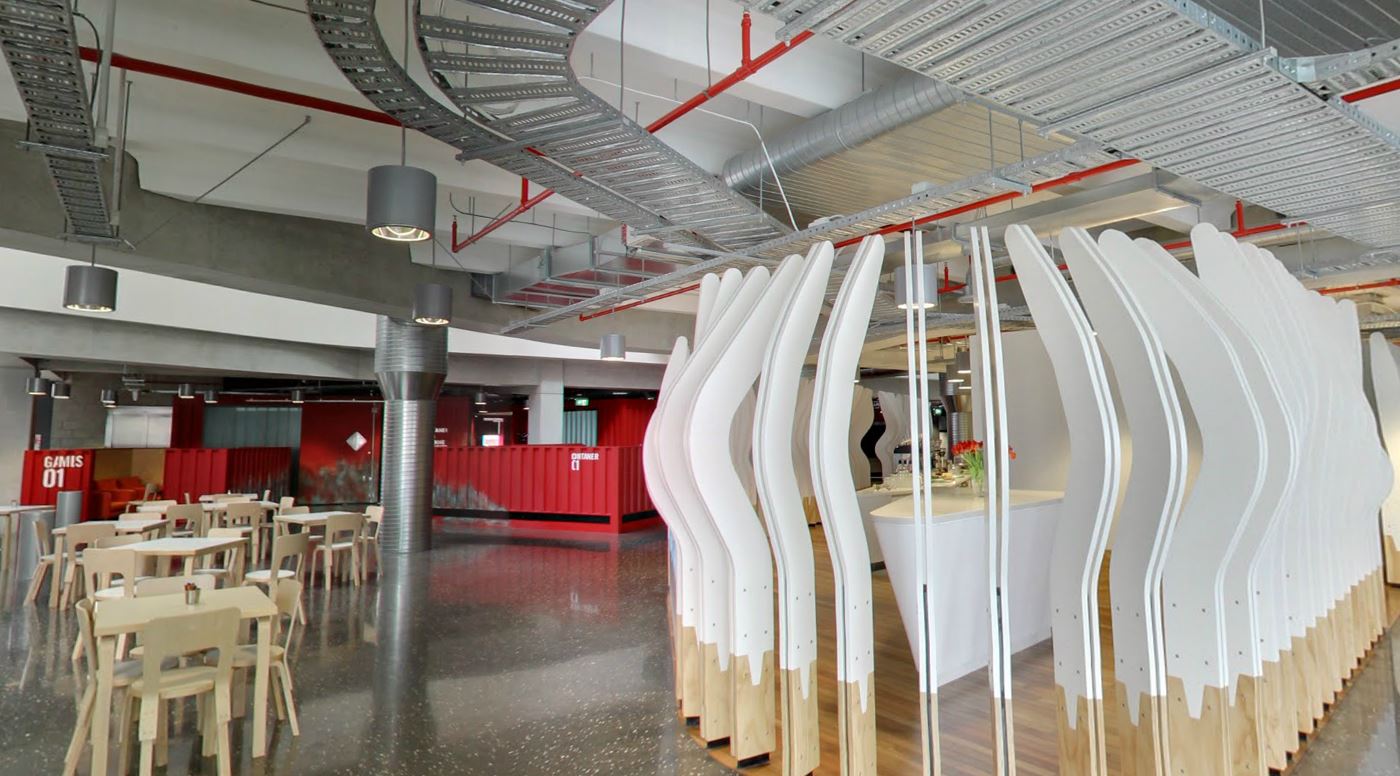Canon
This post is long and a bit pretentious. Think of it as therapy for me rather than something you should read1.
Last time I was in New York, Matthew and I were on the High Line, strolling about and shooting the breeze. We ended up talking about books, and how the things you read are a factor in shaping who you were now. I wrote “What is my canon?“, on my to-do-list that afternoon. I have been dragging that question around like a millstone ever since. For some reason, I haven’t been shaping it in my subconscious like I usually do. It has been like a glass marble with a question in it; I can look at it, but not touch.
Unanswered questions normally serve as filing cabinets that I store snippets in. Until I feel like there is enough raw material for a fully formed thought snippets keep piling up. Impenetrable idea-anchors often fade away without any fanfare but this one has stuck2.
I find myself wedged uncomfortably between architecture people and technology people. I’m not really one of either.
This leads me to have enormous past tense FOMO. The sense that I should have read lots of books. The Architect is a little ashamed. I have never read anything by the Modernist Masters, or for that matter, much of architectural theory outside the millennial cusp stuff, by Greg Lynn, Hani Rashid and chums.
The technology person in me hides behind an even more extreme fig leaf. I don’t have the obligatory grounding in Tolkien and Asimov. Except accept for reading The Hobbit in primary school, I haven’t read any Tolkien3. The list of things I have not read, and feel that I should, could last pages4. Not to mention the things that are unknown unknowns.
That said, I have read a lot of other things. Most of it has had some part in shaping who I am, and the initial question was not, what is not my canon. I could probably break my life into two parts from a canon perspective.
Number one, from birth until the beginning of my third year at uni. I read a review of the non-standard architectures exhibition at the Pompidou Centre. 5. I went to the exhibition, wrote my dissertation about the subject. The rest was history. I am not really sure what was going on in this section; there wasn’t a direction. There was a lot of magazine reading6. There was lots of reading Robinson Crusoe and Enid Blyton under the covers with a torch while I was a kid.
Number two is from then until now. We can split that in half as well.
Section A, is computers, geometry, shade making etc. The stuff I read to write my undergrad dissertation and do my masters.
Section B, is still happening. It started while I was doing my diploma. I was close to Oxford Uni, the Future of Humanity Institute, James Martin School, etc. Going to the lectures and seminars that came with that meant that I was getting to see all kinds of strange ideas.
Up to the end of A I was a firm believer in the tractability of problems. If you just threw enough computing resources at them they would submit. Then slowly I realised that was not only false, but almost always false. That put me into the right frame of mind to be fascinated by the wicked problems the FHI was into.
I wanted to know how the future would play out. I was convinced that my major study was going to be about future prediction techniques. It didn’t end up going that way, but the evolution into the study of over-confidence was an important thing. Not the end points, but the journey.
Through exposure to new ideas during the last year of my diploma I changed how I looked at the world a lot. I discovered that being a contrarian wasn’t a bad thing, that rationality could be practical. Maybe most importantly, that biases were ever present. These were revelations. A combination of reading, Overcoming Bias, philosophy bites, Econtalk, and a keystone of Erika’s recommendation of Irrationality. All these things had a big influence on me, mainly because they were introducing me to new ideas.
Imagine the effect, that learning how dysfunctional brains are, had on a version on me that had spent the previous two years reading Alice in Wonderland, Flatland other geometry rooted ideas! Logic existed in the abstract, but it was not a native thought start. Hanson and Boston have had a huge effect on how I think. The Global Catastrophic Risks Conference lead to my running my Beginners Guide to the Apocalypse Studios at UTS. 7
My career at BVN has followed a similar trajectory. I started off working with shapes; rational stuff like solar driven geometry. Analysing how facades would work, making bits of ASB work.




Then it shifted and I’ve ended up making internal products and finding ways to get people talking and having ideas. Things like a system to capture all the data we were missing about projects, or a twitter thing to find #architecture’s #bigquestions.
Some time in my third year I became a huge William Gibson fan, then once I’d finished everything he’d written I started on Neal Stephenson. I’ve now read everything Stephenson wrote–I feel like his books leave me feeling smarter and knowing more than I started with. I’ve also recently become a fan of Hardcore History.
I’ve also been tracking the articles I read for a little while now via Pocket and IFTTT.
-
you could probably apply this disclaimer to everything I write! ↩
-
I initially wrote this on holiday, this bit said: The latest trigger resurrecting this question is, 1) this new notebook, and 2) that I’m reading “Zen and the Art of Motorcycle Maintenance” (ZAMM from now on, it’s a bit of a mouthful). I get the feeling from the way people speak about it that people-like-me should read “ZAMM”. That it should be pivotal in their lives. In fact, I have probably come through it rather late in my life. I get the feeling that it would be life altering if you were to read it in your teens. ↩
-
I’m stereotyping technology people as such terrible nerds. I read a few pages of Silmarillion in primary school, but I was totally defeated by it. ↩
-
although I have read The Mythical Man Month, so I feel like everything should be forgiven. ↩
-
Until that point I wanted to do the psychology of how bars worked! ↩
-
I had every edition of Wallpaper* until issue 100 ↩
-
even though I think that the only place that a studio like Beginner’s guide to the Apocalypse will ever be successful is Oxford Brooks, nowhere else, promotes _thinking _as strongly. ↩